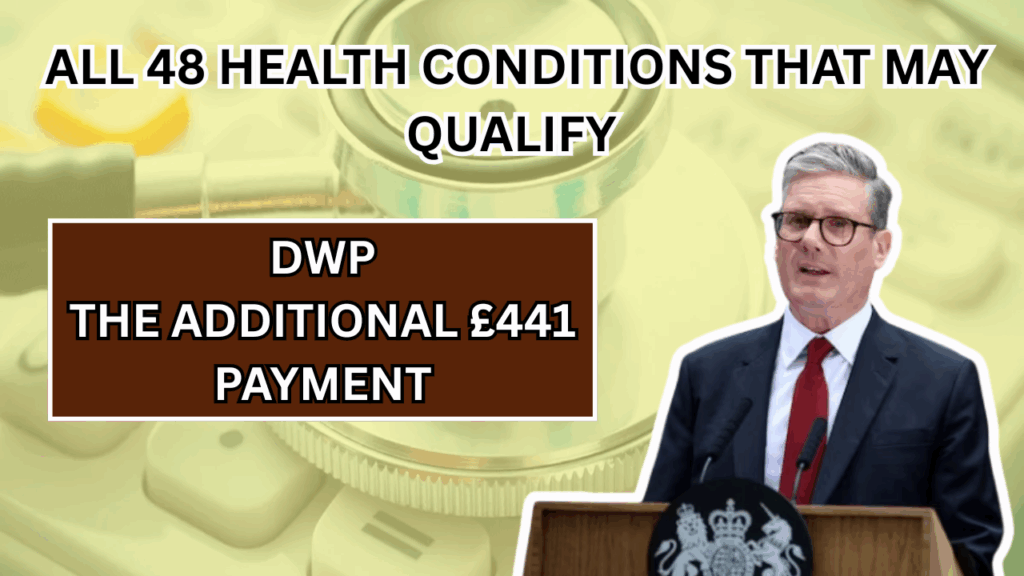Thousands of older adults across the UK could be missing out on vital financial support worth up to £441 every four weeks. The Department for Work and Pensions (DWP) provides Attendance Allowance to individuals over the State Pension age who need help with personal care due to a physical or mental health condition. However, many eligible individuals either do not know about it or assume they are not entitled to the benefit.
While there is no exhaustive list from the DWP specifying eligible health conditions, experts and welfare organizations have compiled a list of 48 common conditions that often qualify for Attendance Allowance.
What is Attendance Allowance?
Attendance Allowance is a non-means-tested benefit designed to support older adults with extra care needs. The payment is intended to help cover additional costs associated with personal care or supervision, whether at home or elsewhere.
Depending on the level of help needed, eligible individuals can receive either:
- Lower rate of £72.65 per week if you need help during the day or night.
- Higher rate of £108.55 per week if you need help both during the day and at night, or if you have a terminal illness.
This adds up to £441.60 every four weeks at the higher rate.
The benefit is not impacted by savings, income, or any other benefits. This makes it an essential form of financial support for pensioners dealing with health challenges.
You can find full official details and how to apply on the GOV.UK Attendance Allowance page.
48 Common Health Conditions That May Qualify for Attendance Allowance
According to welfare support organizations, including Citizens Advice and Age UK, the following conditions are among those most commonly leading to successful Attendance Allowance claims:
- Arthritis
- Osteoarthritis
- Rheumatoid arthritis
- Back pain
- Spinal disorders
- Mobility problems
- Hip replacement issues
- Knee replacement issues
- Stroke
- Heart disease
- Coronary artery disease
- Angina
- Atrial fibrillation
- Chronic obstructive pulmonary disease (COPD)
- Asthma
- Diabetes
- Epilepsy
- Parkinson’s disease
- Multiple sclerosis (MS)
- Motor neurone disease (MND)
- Dementia
- Alzheimer’s disease
- Depression
- Anxiety disorders
- Schizophrenia
- Bipolar disorder
- Learning disabilities
- Autism spectrum disorders (ASD)
- Blindness or severe visual impairment
- Deafness or severe hearing impairment
- Incontinence
- Bowel disease (IBS, Crohn’s disease)
- Kidney disease
- Liver disease
- Cancer (including terminal illness)
- Chronic fatigue syndrome (CFS/ME)
- Fibromyalgia
- Lupus
- Skin conditions (eczema, psoriasis)
- Sleep disorders (including sleep apnea)
- Osteoporosis
- Balance disorders
- Dizziness and vertigo
- Respiratory failure
- Neurological disorders
- Phantom limb pain
- Circulatory diseases
- Amputations and prosthetic challenges
It is important to note that the DWP assesses claims based on how your condition affects your daily living and care needs rather than the condition itself. Even if your condition is not on this list, you may still be eligible if it impacts your daily activities or requires supervision for your safety.
What Kind of Help Qualifies?
Attendance Allowance is provided for those who need:
- Assistance with personal care, such as washing, dressing, eating, or taking medication.
- Supervision to avoid danger, such as falls, accidents, or medical emergencies.
Crucially, you can claim even if you don’t currently receive help, but you need it.
For example, if you struggle with tasks like using the toilet at night, remembering to take medication, or ensuring you stay safe while cooking, you might qualify.

How to Apply for Attendance Allowance
Applying for Attendance Allowance requires completing a detailed claim form where you explain how your condition affects your daily life. You can get the form by:
- Calling the Attendance Allowance helpline at 0800 731 0122.
- Downloading the form directly from the GOV.UK website.
For support in filling out the form, charities like Citizens Advice and Age UK offer guidance.
Once submitted, the DWP will assess your claim and may contact you for more information. In some cases, a medical assessment may be arranged, but most claims are reviewed based on the information provided.
Why Are Many Missing Out?
According to Age UK, over 3.4 million older people are living with a disability, yet thousands miss out on Attendance Allowance simply due to lack of awareness or fear of complex forms. Welfare groups encourage everyone to check if they, or a loved one, may be eligible.
Conclusion
Attendance Allowance remains one of the most under-claimed benefits in the UK. If you or someone you know is struggling with a long-term health condition that impacts daily living, checking eligibility for Attendance Allowance could open doors to essential financial help.
Visit the official GOV.UK Attendance Allowance page to learn more and begin the application process.





